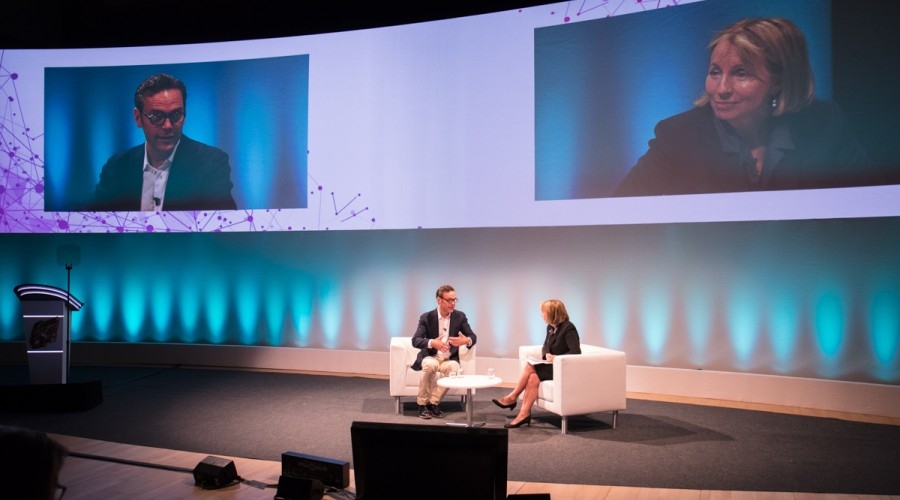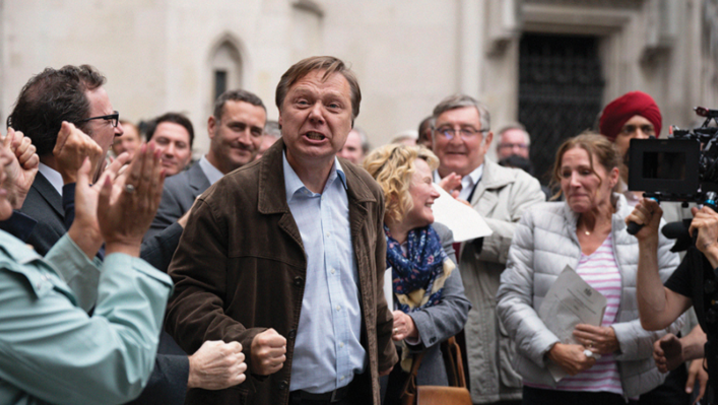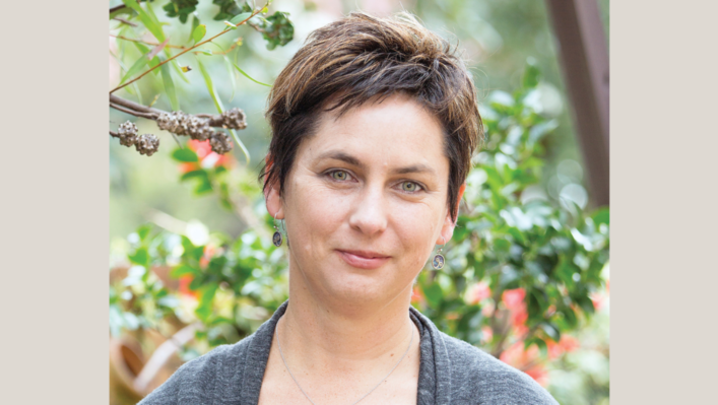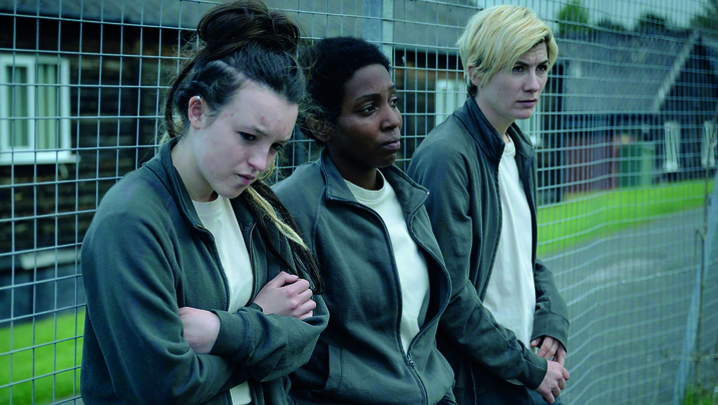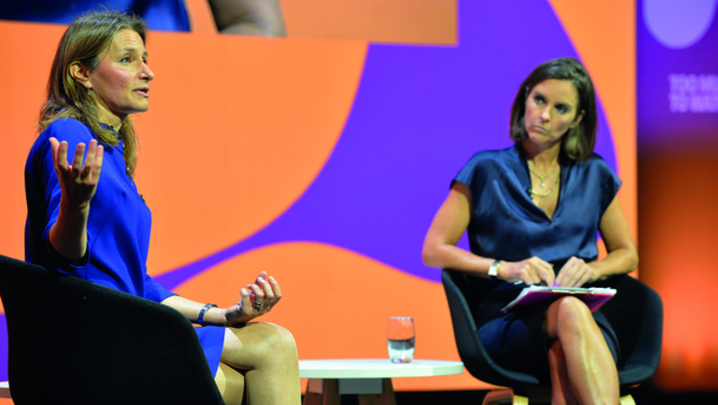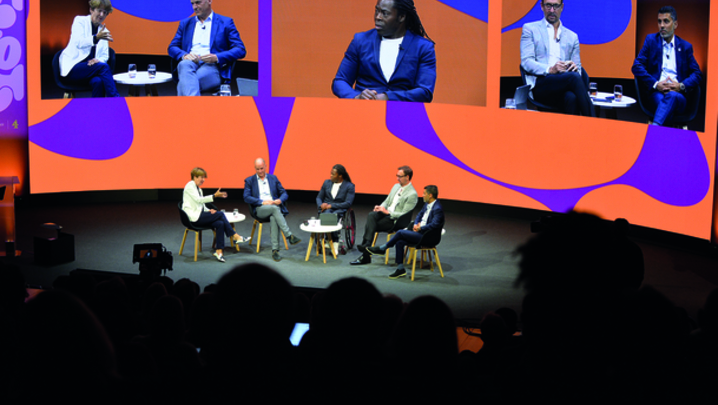James Murdoch makes the case that a wholly Fox-owned Sky is what a post-Brexit UK needs
The title of this year’s convention is “A world of opportunity” and I’m happy to be here to suggest that, in answer to the challenges that present themselves today, it’s of paramount importance to embrace opportunity with open arms.
Tomorrow’s commercial media needs to be able to compete globally, and at an unprecedented scale, and the opportunity this provides – creatively and commercially, for our businesses, our customers and our communities – is immense.
An appetite for disruption has been the essential ingredient for success in the digital world, a world we all inhabit today, like it or not.
At 21st Century Fox, and at Sky, we always talk about change not as an outside force, but as a tool, an energy that must be deployed. We strive to stoke a zeal for change, not a hardy defence against it.
Much of what drives it is born out of a 100-year history fuelled by exploration, invention and a restless taste for disruption. We’re a company built by asking big questions and taking even bigger risks. We know from experience they’ll be the ones that actually shape the future and make history. It’s a culture that is more valuable, and necessary, by the day.
New entrants, along with longstanding storyteller competitors, will shape a future defined by constant connectivity, nearly limitless choice and non-stop innovation.
And many of these firms are competing and creating across multiple geographies, with vast resources, in the pursuit of engagement from millions and billions of customers. The competitive environment is unprecedented and the demands it places on any storytelling business are profound.
William Fox founded the Fox Film Corporation in 1915, with an independent mind, global outlook and zeal for innovation. For our company, which acquired the studios [in 1985], his legacy inspires our quest to tell great stories – which, for us, began with journalism.
Since acquiring 20th Century Fox Film, we developed the Fox Broadcast Network, a venture almost universally dismissed at its inception, which went on to become the fixture of the US media landscape that it is today.
We founded Sky Television in the UK and Ireland, Sky Italia, and Sky Deutschland, dramatically enabling a step change in plurality in all five markets we serve.
Before long, all video entertainment, sports and news will be consumed over IP streaming networks. The net effect is that all content will be available to everyone all of the time. We’re almost there – a world of ultimate plurality. We approach this [by remaining] fanatically focused on building brands that matter.
The best brands enable a curatorial identity that doesn’t diminish serendipity in the way that simple search and algorithmic optimisation for engagement does.
Viewers know what to expect from National Geographic, Fox Sports, FX or Sky Atlantic. And, within these brands, the diversity of our storytelling is paramount.
We’ve moderated presidential debates, connected communities with local news, mapped the farthest corners of the planet, explored the opioid epidemic, gender identity and race relations, reinvented the ancient Indian sport of kabaddi, told stories of slavery in America, the rights of women in Pakistan and the coming exploration of Mars.
These projects do not simply chase blockbusters or commission by algorithm, but empower artists to say and do hard things.
In the UK, 21st Century Fox and Sky invested around £700m last year in original production and we intend to continue at least that level of investment. The creative powerhouse of Endemol Shine is also one of the country’s leading producers of scripted programming – Black Mirror, Broadchurch and Humans, watched in more than 100 countries.
Scale provides the confidence to invest strategically, take risks
Globally, Endemol Shine is among the most prolific creators, with 700 productions in 66 countries.
It’s one of many film and TV brands stamped “Made in the UK”, shorthand for storytelling that is smart, acerbic, relevant and entertaining. Such distinctiveness is a tremendous asset to the UK, an important element of any country’s ability to hold a place in the future content economy.
This, for us, is the best place to be proposing a near-£12bn investment, that we expect will be a significant driver of the UK creative industry’s long-term success in a global market.
Sky is everything a great creative company should be: it is imbued with a culture that nurtures ingenuity and innovation. It has reach, room to grow, and has worked diligently to become one of Europe’s great, trusted brands.
When I joined Sky in 2003, there was a special opportunity to innovate…and to create a new business out of a successful, but decelerating, company.
We invested more in programming, technology and new services such Sky broadband. We also maintained and increased our investment in Sky News. I am deeply proud of the journalistic standards at Sky News.
At 21st Century Fox, we often speak about simplifying our business, as part of a core realignment of the company around the future of video. And with our December announcement to acquire the balance of Sky and wholly consolidate the business, we took another major step in pursuit of that goal.
Scale provides the confidence to invest strategically, take risks… it’s what allows us to take big, creative swings and empower a diverse range of creators to tell breakthrough stories that can drive meaningful change. Those factors all played into our rationale for moving forward with this transaction.
Inward investment in the UK creative economy, and the positive signal it sends to companies around the world, is more important than ever as the UK prepares to chart a course outside the EU. Indeed, the soft power of the UK’s creative identity is going to be a big part of that story.
And so, if the UK is truly “open for business” post-Brexit, we look forward to moving through the regulatory review process and this transformative transaction for the UK creative sector becoming an affirmation of that claim.
Our commitment is about more than market success. Companies have to mean something to their communities, customers and shareholders. What the team at Sky is doing with Sky Arts and Oceans Rescue is all part of this same belief system – that companies should embrace what their customers and people care about and that, by so doing, it makes them stronger.
At only three years old, but with a rich heritage, 21st Century Fox has both the spirit and the stamina to help define and shape what this business of ideas looks like over the next 100 years.
And I am hopeful that, here in the UK, a major chapter of our company and the entire industry will be written, with benefits shared broadly across the economy and society. Indeed, everything we have done has been about increasing choice, amplifying diversity and adhering to the highest broadcast standards inside a plurality machine that we optimistically call 21st Century Fox.
This is an edited version of the speech given in Session Seven by James Murdoch, CEO of 21st Century Fox, who was interviewed by Sarah Sands, editor, Today, BBC, who also chaired discussion from the floor. The producer was Helen Scott.
Click here to read the full speech.
Question & answer
Q: Sarah Sands: This time, what went wrong with the Sky takeover? You played nicely, less aggressively, and yet the decision is the same. I wonder if the problem is that you presided over this rotten culture at News International and, again, at Fox News. People don’t trust you. Is that the message?
A: James Murdoch: No, I don’t agree. They are completely different processes. When we first sought to acquire the balance of Sky, it never went to the Competition and Markets Authority. And the decision was made to offer a number of undertakings probably insufficient to deal with concerns about plurality.
At the time, we discovered real governance issues at News International in the past – phone hacking, illegal things, and we had to focus on that.
What’s changed is that the companies have separated. News Corp is a separate entity and 21st Century Fox has continued to grow.
As we look at the marketplace going forward, scale and simplicity are going to be fundamental. We were disappointed at the CMA reference, but we are looking forward to engaging. We have a clock ticking, we have a process, a reputation for probity and seriousness, and look forward to presenting evidence in a very straightforward way, and are confident it will go through.
In a large organisation, there are always things that go wrong. The question is how you respond, deal with them. Fox News: we had a situation where we learned of sexual harassment. The key issues for me were: what are the facts, how do we react, and [how to] do it quickly, loudly, so that everyone understands certain things are intolerable. No organisation is going to be perfect.
Q: Even if the companies change, isn’t the same family in control?
A: You put in place hotlines, avenues for complaints. The first we heard of the Roger Ailes allegations was in the New York Times story, that a lawsuit was about to be filed. In less than two weeks, we made the decision we had to move on from Roger Ailes. You have to say it clear and hard. That’s not acceptable behaviour.
Q: Are there any concessions you are going to make [to the CMA] – do you sacrifice your own role? Do you still need Sky News?
A: I don’t think now is the time to get into that. We will see what issues they identify. We are pretty confident, because the independent external regulator [Ofcom] did a very good, thorough job.
Q: Were you wounded by the standards issue, that there is this lack of trust, [over] the Murdoch “toxic culture”?
A: You are over-personalising it. The record should stand. We owned 100% of Sky News for many years. There were no issues. When I was Chief Executive, no issues. When I was Chairman, no issues.
Whether or not, 30 years ago, someone had a grievance about a political decision a newspaper took that is no longer a part of the business is irrelevant to a process that should be transparent and evidence-based.
Q: What’s your position on Donald Trump? Do you discuss politics with your dad?
A: My politics are not an issue here. It’s an irony that, in the US, some sectors think I am a raging liberal, environmentalist, tree-hugger. Here, I’m a right-wing demon who is going to “Foxify” everything. Mystery is important [audience laughter].
Q: So Sky News would not become like Fox News if you were given more power over it?
A: Fox News is highly designed for a US audience, a polemical market and very different dynamic. We took Fox News off [in the UK, in August]. Fewer than 2,000 viewers watched it – it did not make commercial sense.
Impartiality is about balance, it is the [UK] law, and it is the right way for Sky News to operate. Ofcom concluded that our record was comparable to others, including the BBC: there was no material difference.
Q: Claire Enders, Enders Analysis: Are you threatened by Amazon and Netflix’s activities and the talent drain from UK television – is it dangerous for the traditional pay-TV model?
A: From a talent perspective, no one talks about our business and says we are underpaying.… We have partnerships with the creators [of series such as The Simpsons].…For a lot of creators, Netflix is where your shows go to die. They become another hour on the shelf among the billions of hours.… It’s a different business model: rather than buying a cost-plus licence fee for the life of a series.…
Amazon, for example, spends a lot of time making a lot of noise about how much it is investing. It shows up, does a big, splashy deal and everyone fawns all over it.
There are very few companies that really invest over the long term and put thousands of people on the ground in markets such as the UK, Italy and India.
We have to be cautious about the shiny, new thing.

